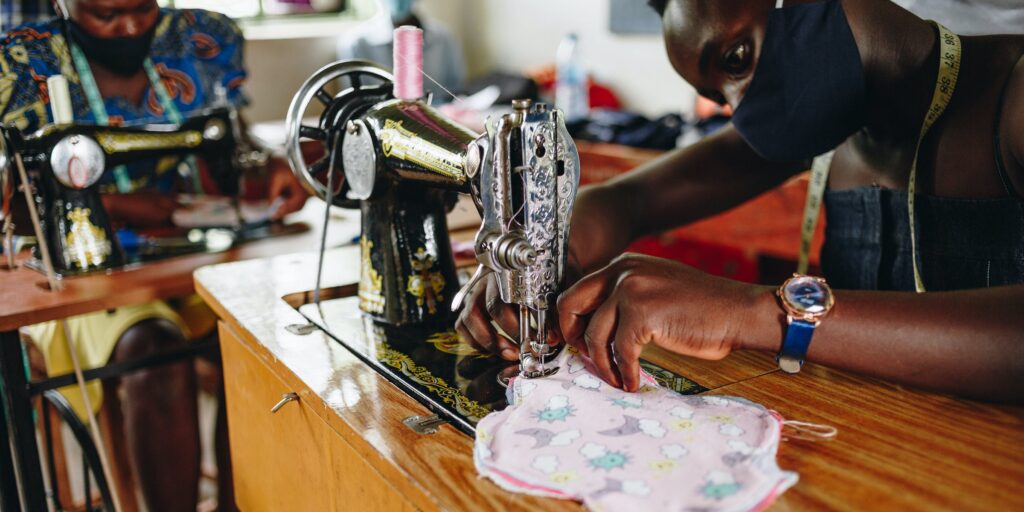
A better future often seems like an impossible dream to young people living in the most impoverished communities around the world.
In countries like Burundi and Rwanda, for example, the average household farm does not produce enough harvest to meet a family’s food and income needs, no matter how hard they work on the land. As children become teens, they must find a way to earn their own incomes and support themselves in order to survive.
Sadly, this difficult situation forces young people in the community to drop out of school. As a result, they don’t have the skills or education necessary to succeed. This is the cycle of extreme poverty. And it was the situation faced by Fidele.
Coming Apart at the Seams
Fidele lived with his family of eight, including two aging parents who were no longer able to work. The family shared one very small, unproductive plot of land.
Fidele dropped out of school in order to work when he was in eighth grade. Things were so difficult that even his younger brothers began working daily for neighbors just to buy something to eat. No matter what Fidele tried, he was not able to make enough money to cover even the most basic needs.
At the dinner table, there was never enough food. When family members needed medical care, there was no money to pay the cost. Without skills or a trade, Fidele began to see that the future offered little hope
But that changed when Food for the Hungry (FH) arrived in Fidele’s community. FH and their partners would offer him a life-changing opportunity that would also allow him to play an important role in strengthening his entire community.
A Glimpse of Hope
“When I heard FH was going to assist the young people in my community by training them for various trades, I immediately registered for the sewing program,” says Fidele.

“We trained for six months, and I received a sewing machine with its accessories when I graduated,” Fidele says. “I can earn between BIF 10,000 and 15,000 per day.” That amount translates to approximately $5–8 in U.S. currency.
Fidele, now 25, crafts garments and tailors clothing for others in his community. He supports himself, his parents, and his siblings. And it’s a business he can continue to expand, as he helps others who now work for him.
Crafting A Future Together
“In the next year, I plan to expand my sewing workshop by buying more sewing machines. I will grow my business and at the same time train others who work for me, giving other young people the chance to develop a livelihood and support their families.
“This is how I am helping to strengthen my community,” he says.
Helping young adults learn reliable livelihoods that lead to a regular income is one of the important ways FH and their partners help address the root causes of poverty. This builds sustainable resilience so Fidele and others in his community may flourish.

See Similar Posts:
Gender Equity Awareness Transforms a Father in Ethiopia
Cash Transfer Enables Livelihood for Ethiopian Mother of Six


